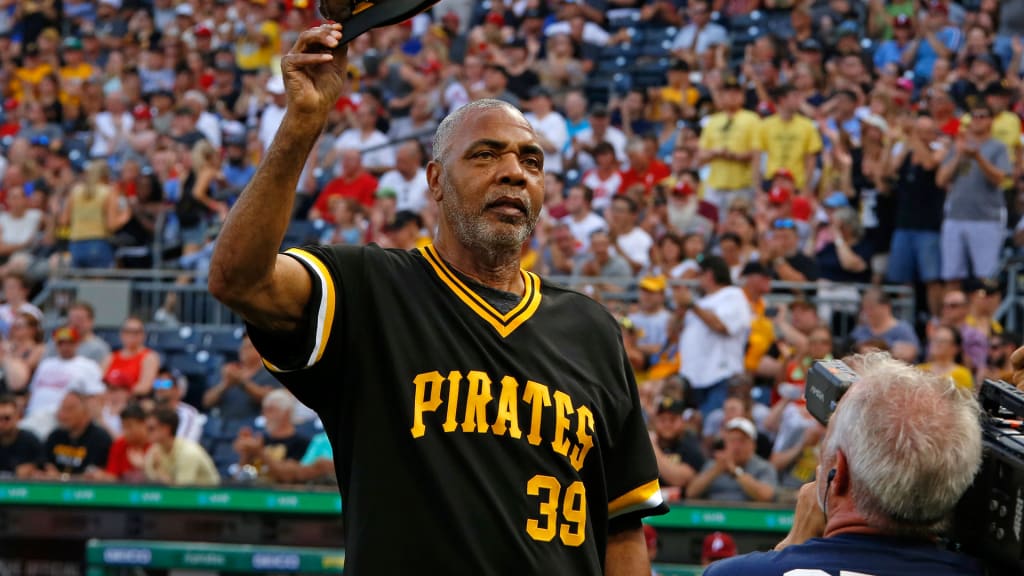
NEW YORK -- Dave Parker was known as "The Cobra," perhaps because of his quick bat, perhaps because of his quick wit. Maybe both. Parker was an intimidating force that struck with a 37-ounce bat during the 1970s, '80s and early '90s for six Major League teams, most notably the Pirates, Reds and Athletics.
Who could forget that cannon of an arm -- the one that threw out Jim Rice and Brian Downing in the '79 All-Star Game, earning him Most Valuable Player honors? Parker had a brash persona -- on the field and off -- that reminded many of Muhammad Ali. In addition to his arm and his bat, Parker wielded unequivocal confidence -- "I'm the best player in the game, bar none" -- and poetic proclamations -- "When the leaves turn brown, I'll be wearing the batting crown" -- in equal measure.
Now 68, Parker is no longer intimidating, but he is still very much a fighter. He has been battling Parkinson's disease -- which runs on his father's side of the family -- since 2012. After years of battling the disease in private, Parker now is emerging as a powerful voice in the fight to find a cure.
That fight is front and center of the MLB Network documentary, "The Cobra at Twilight," which premiered Thursday at 8 p.m. ET, narrated by music legend Chuck D. The documentary airs just a few days after he missed out on admission to the Baseball Hall of Fame, this time falling short in voting by the Modern Baseball Era committee.
Parker had an extraordinary baseball career, winning the National League MVP Award in 1978, appearing in seven All-Star Games and serving as a driving force of the '79 Pirates and '89 Athletics teams that won World Series titles. And yet his 19-year career has, so far, not resulted in the Cooperstown admission he desires.
His landmark contract in 1979, which averaged $1 million a year, brought on intense scrutiny, which was exacerbated by Parker's involvement with the drug issues that permeated baseball in the late 1970s. Parker was part of the Pittsburgh drug trials in 1985, but later found renewal and a sense of peace in his hometown of Cincinnati, where he served as a mentor and leader for his younger teammates there, as well as in Oakland and Milwaukee. After short stints with the Blue Jays and Angels, he retired after the 1991 season.
"The thing that resonated with me more than anything," recalled former Reds great Eric Davis, " was that he did not want me to drift into some of the things off the field that he did."
Through the documentary, baseball fans will get to know Parker the player and person by hearing from the man himself, plus a boatload of baseball luminaries, including Davis, Dennis Eckersley, Tony La Russa, Barry Larkin, Phil Garner, Pete Rose, Gary Sheffield and Kent Tekulve. "The Cobra at Twilight" also interviews some of Parker's childhood friends from Cincinnati, as well as former Steelers Mean Joe Greene and Tony Dungy, who also played in Pittsburgh during the '70s.
Parker's wife, Kellye, shares how her husband is dealing with Parkinson's, grinding through daily exercises, medical treatments and regular doctor's visits with a positive attitude.
The Cobra may have lost his strike, but he's not lost his fight.
